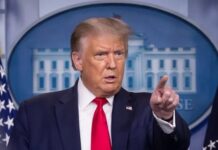Lebanon’s Sovereignty at Stake: US tightens grip with military, economic, political pressure
In recent years, Lebanon has witnessed a significant intensification of US influence, shifting from diplomatic interactions to overt political and military control.
This evolution, driven by strategic interests in maintaining regional order, has become a point of contention within Lebanese society.
Financial aid, sanctions, and conditional support have increasingly tied Beirut’s policies to Washington’s objectives, leaving Lebanon grappling with its sovereignty and future direction.
Former US President Barack Obama, in his 2020 memoir A Promised Land, underscored that any move toward independent decision-making in West Asia would challenge US dominance.
This notion of “diplomacy” appears to underpin US policy in Lebanon, as evidenced by the country’s growing reliance on US aid and fear of sanctions.
Resistance movements like Hezbollah and political alliances with Syria remain targets of economic and political pressure aimed at reinforcing American sway.
From Diplomacy to Direct Control
US influence took a more pronounced turn toward guardianship following Israel’s aggressive military actions in Lebanon and the anticipated return of Donald Trump to the White House. US Ambassador to Beirut, Lisa Johnson, recently urged Lebanese political figures to prepare for a “post-Hezbollah era.”
This statement followed the reported weakening of Hezbollah due to setbacks, including the assassination of its former secretary-general, Hassan Nasrallah. Despite public claims that the US seeks diplomatic solutions, actions in Lebanon suggest a focus on consolidating control, often at the expense of local sovereignty.
The Lebanese state, including its military and security institutions, has exhibited compliance with US directives, sometimes bending over backward to meet their demands.
For example, in a publicized incident, a US military attaché was granted access to inspect Beirut’s airport following allegations about Hezbollah’s control of certain facilities.
This event occurred alongside unauthorized US construction in a restricted security zone, illustrating the Lebanese military’s limited capacity to assert its authority against foreign actors.
US Military Influence and Lebanese Compliance
US influence extends beyond Lebanon’s political sphere into its military and security apparatus. Johnson’s recent meetings with Lebanese officials have aimed at preserving the status quo in security leadership.
Meanwhile, Lebanese forces have received significant aid from the US since 2006, totaling approximately $3 billion, ostensibly to bolster national stability and counter Hezbollah’s narrative. Yet, this assistance has not strengthened Lebanon’s capacity to act independently; instead, it highlights the country’s dependency and inability to resist foreign influence.
The weakness of Lebanon’s defense was laid bare during the Batroun incident when an Israeli naval force entered Lebanese waters, detained a naval captain, and withdrew without any meaningful response from the Lebanese military.
Recent American donations to the Lebanese Armed Forces, including equipment and speedboats, have been framed as tools for “maritime border protection” but further emphasize the one-sided relationship between the two countries.
READ ALSO: FG to evacuate Nigerians in Lebanon over impending attack by Israel
Prospects for a Self-Sufficient Lebanon
Lebanon’s struggle for sovereignty is compounded by its ongoing economic crisis and the specter of US sanctions. To counterbalance external influence, Lebanon must pursue diversified international relations and reduce reliance on American support.
Strengthening ties with Eurasian powers such as China and Russia could offer alternative pathways for economic and diplomatic cooperation.
Key initiatives, including economic projects, have faced delays due to US opposition. Moving forward, Lebanon must focus on rebuilding a robust internal economy and enhancing institutional transparency to mitigate foreign encroachment.
Involving civil society, engaging the diaspora, and reinforcing national unity can bolster state sovereignty and empower Lebanon to assert control over its own future.
In a world increasingly defined by competing geopolitical interests, Lebanon’s quest for self-determination will require steadfast commitment and strategic alliances. Only through genuine independence can the Lebanese people reclaim their destiny and shape a prosperous future.
Follow the Neptune Prime channel on WhatsApp:
Do you have breaking news, interview request, opinion, suggestion, or want your event covered? Email us at neptuneprime2233@gmail.com





